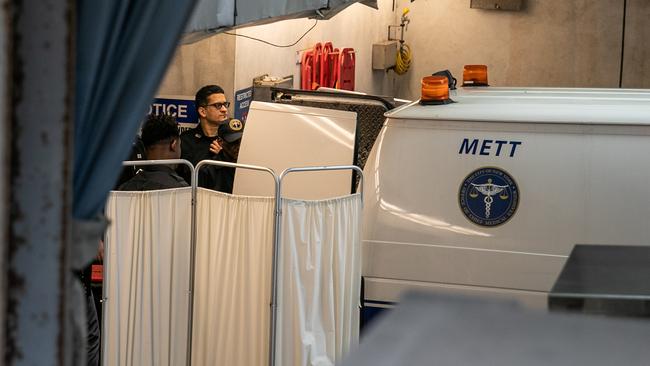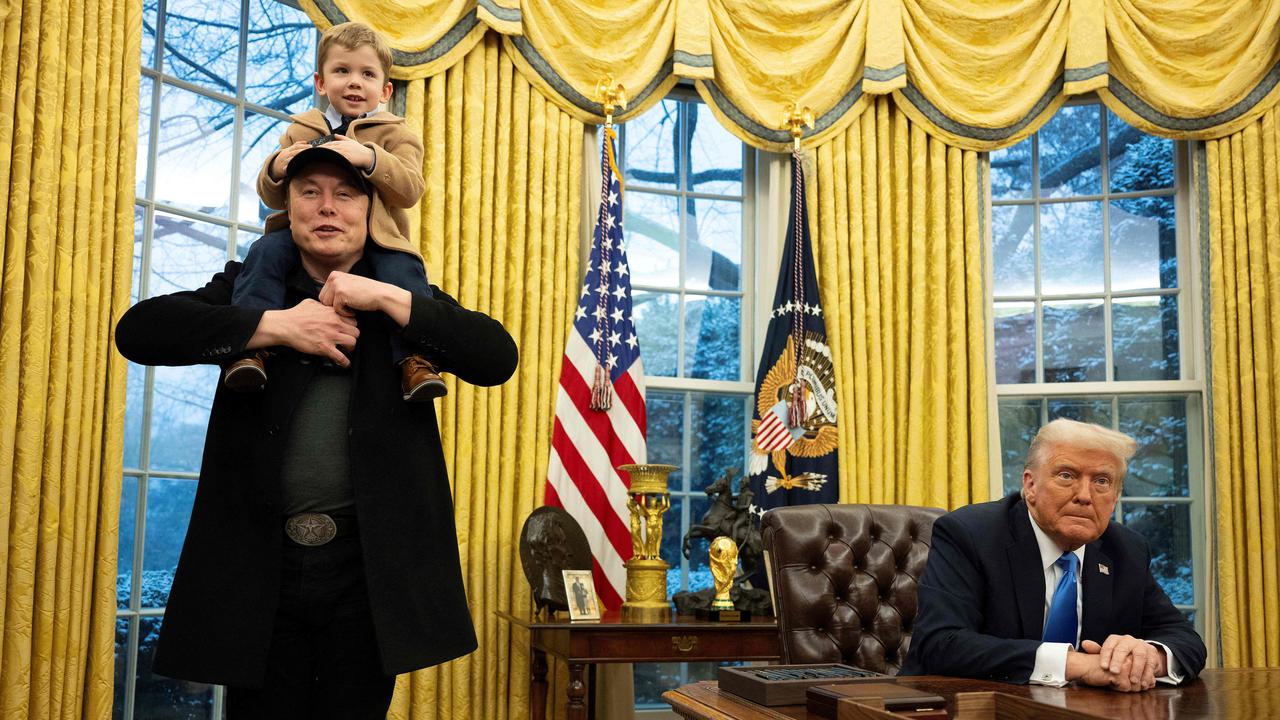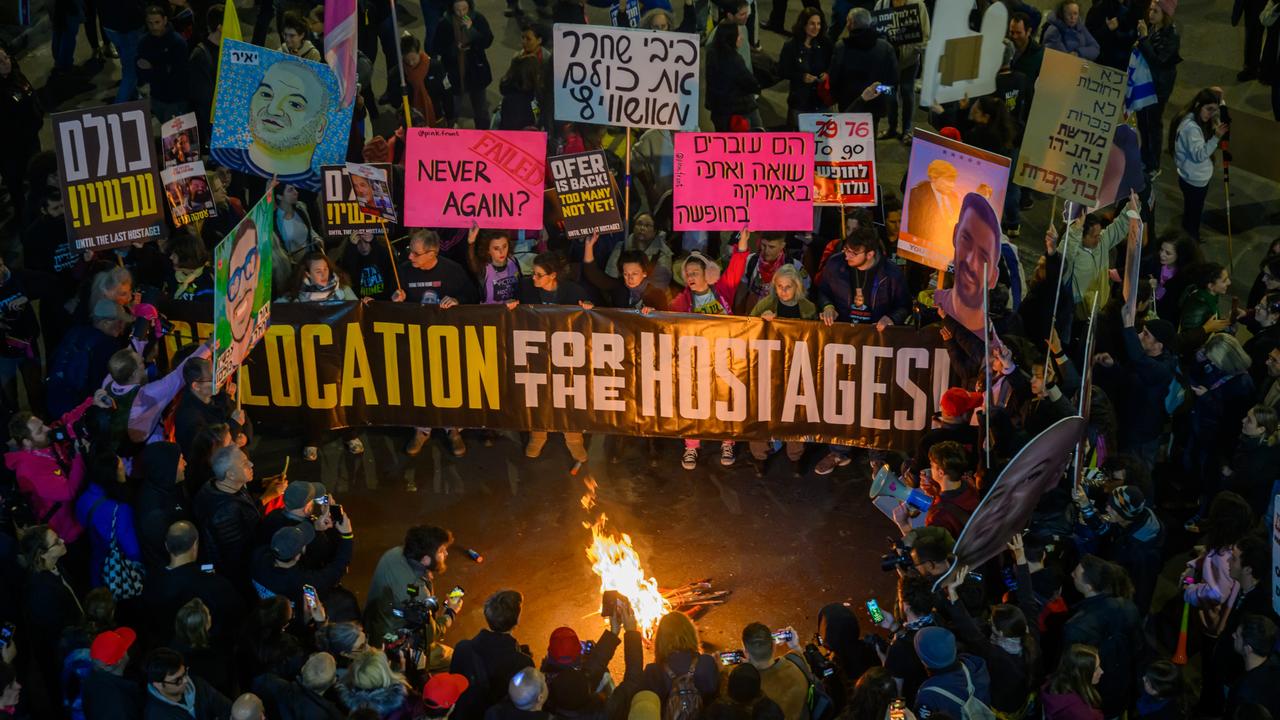Barr calls in FBI on Epstein jail death
The FBI and the Justice Department’s inspector general’s office will investigate how Jeffrey Epstein died in an apparent suicide.

The FBI and the US Justice Department inspector-general’s office will investigate how Jeffrey Epstein died of an apparent suicide, while the probe into sexual abuse allegations against the well-connected financier remains ongoing, officials say.
Epstein, accused of orchestrating a sex-trafficking ring and sexually abusing dozens of underage girls, had been taken off suicide watch before he killed himself in a New York jail, a person familiar with the matter said. The New York Times quoted officials saying it was by hanging. He was reported to have been on a suicide watch after an incident two weeks ago.
US Attorney-General William Barr, in announcing the investigation, said he was “appalled” to learn of Epstein’s death while in federal custody. “Mr Epstein’s death raises serious questions that must be answered,” Mr Barr said.
Epstein was found unresponsive in his cell on Saturday morning at the Metropolitan Correctional Centre. Fire officials received a call at 6.39am on Saturday (8.39pm AEST) that Epstein was in cardiac arrest.
He was pronounced dead at New York-Presbyterian Lower Manhattan Hospital.
The 66-year-old had been denied bail and faced up to 45 years behind bars on federal sex trafficking and conspiracy charges unsealed last month. He had pleaded not guilty and was awaiting trial.
The federal investigation into the allegations remains steadfast, US attorney Geoffrey Berman said. He noted the indictment against Epstein includes a conspiracy charge, suggesting others could face charges in the case.
Epstein had been placed on suicide watch and given daily psychiatric evaluations after an incident a little over two weeks ago in which he was found with bruising on his neck. It hasn’t been confirmed whether the injury was self-inflicted or from an assault.
The Bureau of Prisons confirmed he had been housed in the jail’s Special Housing Unit, a heavily secured part of the facility that separates high-profile inmates from the general population. Until recently, the same unit had been home to the Mexican drug lord Joaquin “El Chapo” Guzman, who is serving a life sentence at the Supermax prison in Colorado.
Epstein’s death raises questions about how the Bureau of Prisons ensures the welfare of such high-profile inmates. In October, Boston gangster James “Whitey” Bulger was killed in a federal prison in West Virginia where he had just been transferred.
Ben Sasse, a Republican member of the Senate judiciary committee, wrote in a scathing letter to Mr Barr that “heads must roll” after the incident. “Every single person in the Justice Department — from your Main Justice headquarters staff all the way to the night-shift jailer — knew that this man was a suicide risk, and that his dark secrets couldn’t be allowed to die with him,” he wrote.
Cameron Lindsay, a former warden who ran three federal lockups, said the death represents “an unfortunate and shocking failure”. “Unequivocally, he should have been on active suicide watch and therefore under direct and constant supervision,” he said.
His removal from suicide watch would have been approved by the warden of the jail and the facility’s chief psychologist, former prison official Jack Donson said.
A lawyer for Epstein, Marc Fernich, said jailers at the Metropolitan Correctional Centre failed to protect his client and to prevent the “calamity” of his death.
Epstein’s arrest last month ignited separate investigations into how authorities handled his case initially when similar charges were first brought against him in Florida more than a decade ago. Labour secretary Alexander Acosta resigned after coming under fire for overseeing that deal when he was US attorney in Miami.
Sigrid McCawley, a lawyer for Australian Epstein accuser Virginia Roberts Giuffre, said his suicide less than 24 hours after documents in a defamation case involving his client were unsealed “is no coincidence”. Ms McCawley urged authorities to continue their investigation, focusing on associates who she said “participated and facilitated Epstein’s horrifying sex trafficking scheme”.
Epstein’s arrest drew national attention to a deal that allowed him to plead guilty in 2008 to soliciting a minor for prostitution in Florida and avoid more serious federal charges. Federal prosecutors in New York reopened the probe after investigative reporting by The Miami Herald stirred outrage over that plea bargain.
His lawyers maintained the new charges in New York were covered by the 2008 plea deal and Epstein had not had illicit contact with underage girls since serving his 13-month sentence in Florida.
AP


